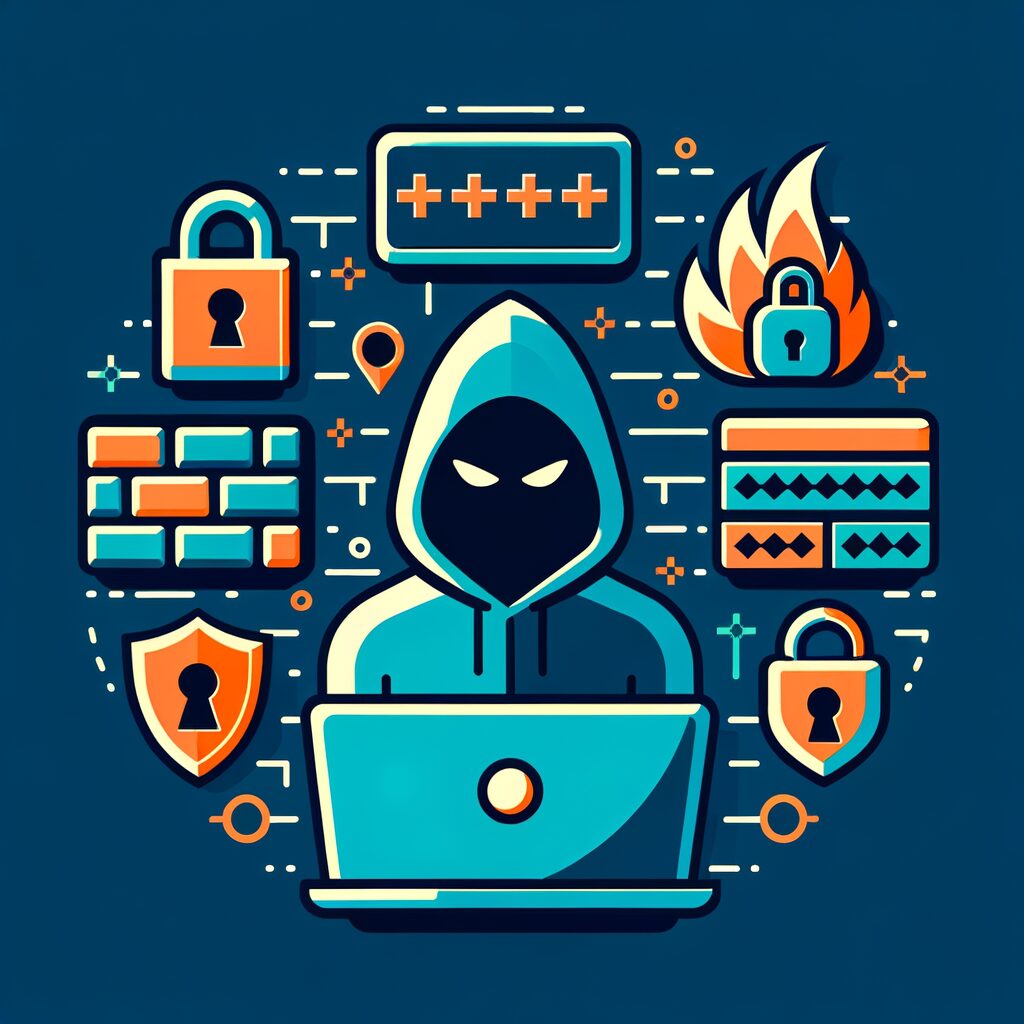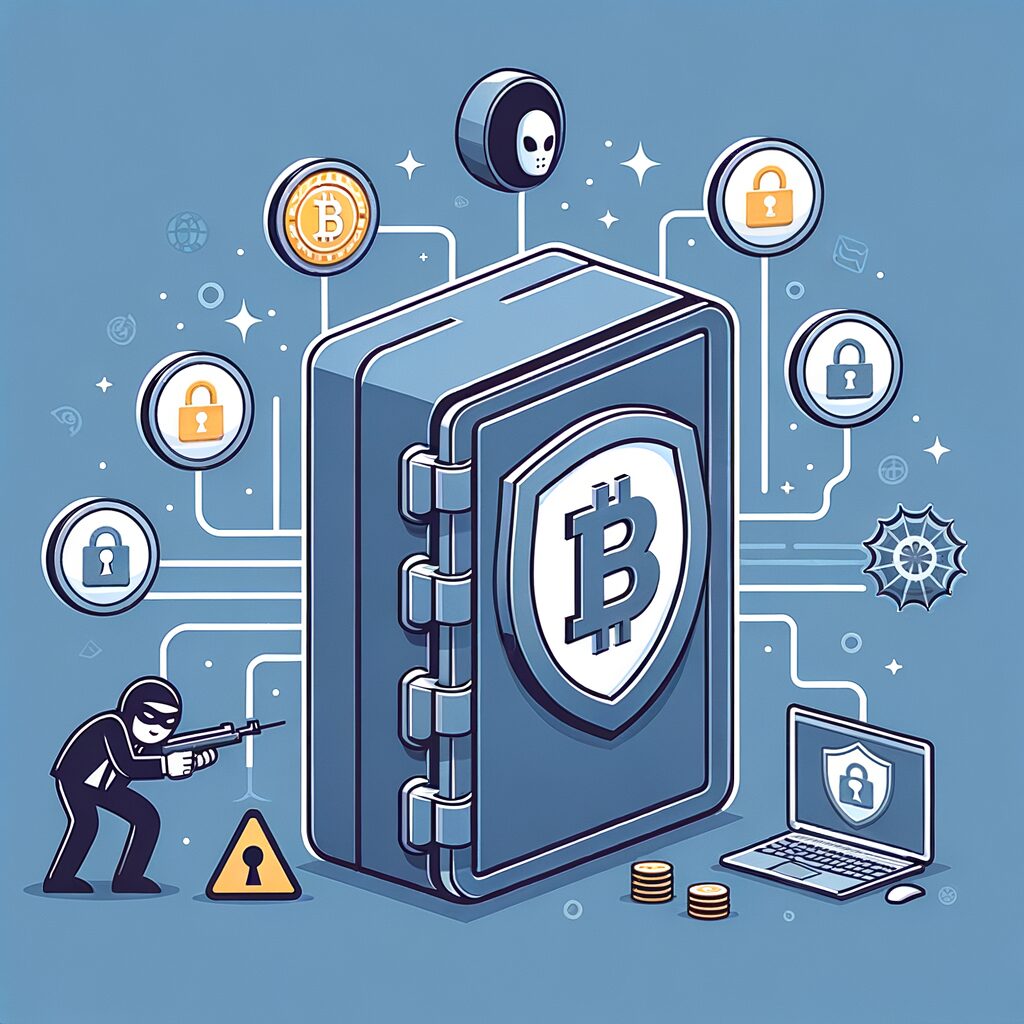
“Fortify Your Digital Wealth: Mastering Crypto Security to Shield Your Assets from Cyber Threats”
Crypto Security Essentials: A Guide to Digital Asset Protection
Crypto Security Best Practices: Tips for Keeping Your Digital Assets Safe from Hackers
In the burgeoning world of cryptocurrency, security is paramount. As digital assets become increasingly integrated into the fabric of financial transactions, the allure for hackers grows stronger. Protecting your investments from such threats requires a proactive approach, blending vigilance with a comprehensive understanding of the best practices in crypto security.
First and foremost, the cornerstone of crypto security is the safekeeping of private keys. These keys, which enable the access to your cryptocurrency holdings, should never be shared and must be stored with the utmost care. Hardware wallets, which are physical devices disconnected from the internet, offer a robust solution. They keep private keys offline, thereby shielding them from online hacking attempts. Additionally, using a secure and unique passphrase for your wallet can add an extra layer of protection.
Moreover, it is crucial to maintain a keen awareness of the platforms and services you use. Opt for exchanges and wallets with a strong track record of security and reliability. Before committing to a service, conduct thorough research to ensure it employs industry-standard security measures such as two-factor authentication (2FA), end-to-end encryption, and regular security audits. Implementing 2FA on all accounts related to your digital assets is a simple yet effective way to deter unauthorized access, as it requires a second form of verification in addition to your password.
Another vital aspect of crypto security is the regular updating of software. This includes not only your wallet software but also the operating system and antivirus programs on any device used to access your cryptocurrency. Hackers often exploit vulnerabilities in outdated software to gain unauthorized access to digital assets. By keeping your software up-to-date, you close these security gaps and fortify your defenses against such attacks.
Furthermore, it is essential to be wary of phishing scams. These deceptive tactics are designed to trick individuals into divulging sensitive information such as private keys or login credentials. Always verify the authenticity of emails or messages claiming to be from legitimate services, and never click on suspicious links or attachments. Remember, reputable companies will never ask for your private keys or passwords via email.
In addition to these measures, it is advisable to keep only a small portion of your assets in online wallets or exchanges for daily transactions. The majority of your holdings should be stored in hardware wallets or other forms of cold storage. This strategy minimizes potential losses in the event of a security breach on an online platform.
Lastly, it is wise to have a backup plan. Regularly back up your wallet data to multiple secure locations. In the unfortunate event that your primary device is lost, stolen, or damaged, these backups will be instrumental in recovering your assets. Ensure that these backups are encrypted and stored in locations that are both physically and digitally secure.
In conclusion, the realm of cryptocurrency demands a proactive and layered approach to security. By safeguarding private keys, choosing reputable services, updating software, staying vigilant against phishing, managing asset distribution, and maintaining secure backups, you can significantly reduce the risk of falling prey to hackers. As the crypto landscape evolves, so too must our strategies for protecting digital assets. By adhering to these best practices, investors can navigate the digital currency space with greater confidence and peace of mind.
Cybersecurity Tips for Safeguarding Your Cryptocurrency Investments

Crypto Security Best Practices: Tips for Keeping Your Digital Assets Safe from Hackers
In the burgeoning world of cryptocurrency, security is paramount. As digital assets continue to gain traction, the allure for hackers grows stronger, making it imperative for investors to adopt stringent security measures. The decentralized nature of cryptocurrencies offers numerous benefits, but it also means that the responsibility for security falls squarely on the individual. By adhering to best practices, one can significantly mitigate the risks and safeguard their investments from the clutches of cybercriminals.
First and foremost, it is essential to understand the importance of private keys. These keys are the gateway to your assets; if compromised, they can grant an attacker unfettered access to your wealth. Therefore, it is crucial to store them securely. Hardware wallets, which are physical devices disconnected from the internet, provide a robust solution. They keep your private keys offline, away from the reach of online threats. Additionally, it is wise to maintain multiple backups of your private keys in different locations, ensuring that loss or damage to one does not result in an irretrievable loss of assets.
Equally important is the practice of using strong, unique passwords for your online wallets and exchange accounts. Passwords should be complex, combining letters, numbers, and symbols, and they should be changed regularly. Utilizing a reputable password manager can help manage the plethora of passwords while maintaining their integrity. Moreover, two-factor authentication (2FA) adds an extra layer of security, requiring a second form of verification beyond just the password. This could be a text message, an email, or better yet, a code from an authenticator app, which is less vulnerable to interception than SMS-based 2FA.
Another critical aspect of crypto security is being vigilant about the software and services you use. Always ensure that your computer and smartphone are up-to-date with the latest security patches and antivirus software. This reduces the risk of malware, which can be used to steal your credentials or corrupt your devices. When choosing an exchange or wallet service, conduct thorough research to confirm its credibility and security track record. Opt for services that prioritize security and have a history of withstanding attacks.
Phishing attacks are a prevalent threat in the crypto space. These scams trick individuals into revealing sensitive information by masquerading as trustworthy entities. To combat this, always verify the authenticity of emails and websites before entering any personal information. Be skeptical of unsolicited communications and double-check URLs to prevent landing on malicious sites designed to mimic legitimate ones.
Lastly, it is advisable to keep a low profile regarding your cryptocurrency holdings. Publicly disclosing the extent of your investments can make you a target for cybercriminals. Practice discretion both online and offline to avoid drawing unnecessary attention to your assets.
In conclusion, the security of your digital assets is not a matter to be taken lightly. By implementing these best practices, you can create a formidable defense against potential threats. Remember, the landscape of cybersecurity is ever-evolving, and staying informed about the latest threats and protective measures is crucial. Vigilance, combined with a proactive approach to security, will go a long way in ensuring that your cryptocurrency investments remain secure in an increasingly digital world.
Protecting Assets in the Digital Age: Strategies for Crypto Security
Crypto Security Best Practices: Tips for Keeping Your Digital Assets Safe from Hackers
In the digital age, the rise of cryptocurrencies has revolutionized the way we think about finance and investment. However, this new form of asset also brings with it unique security challenges. As the value of digital currencies like Bitcoin, Ethereum, and others continues to grow, they become increasingly attractive targets for cybercriminals. To safeguard your investments, it is crucial to adhere to stringent security measures and stay informed about the best practices for crypto security.
First and foremost, the importance of using strong, unique passwords cannot be overstated. Each account that holds your digital assets should be protected with a password that is a complex combination of letters, numbers, and symbols. Avoid using easily guessable information such as birthdays or common words. Moreover, it is advisable to change your passwords regularly and never reuse them across different platforms.
Another critical step in protecting your digital assets is enabling two-factor authentication (2FA) wherever possible. This adds an extra layer of security by requiring a second form of verification, typically a code sent to your mobile device or generated by an authenticator app, in addition to your password. Even if a hacker manages to obtain your password, without the second factor, they would be unable to access your account.
Equally important is the careful management of private keys. These keys are the means by which you can access and control your cryptocurrency. If they are lost or stolen, so too are your assets. Therefore, it is essential to store them securely. Hardware wallets, which are physical devices disconnected from the internet, provide a secure option for storing private keys offline, thus reducing the risk of online theft. It is also wise to keep backup copies of your private keys in multiple secure locations.
Furthermore, staying vigilant against phishing attempts is a must. Phishing is a common tactic used by hackers to trick individuals into revealing sensitive information such as passwords or private keys. Be cautious of unsolicited communications and always verify the authenticity of any messages or websites asking for your personal details. Remember, legitimate companies will never ask for your private keys.
In addition to these individual measures, it is also important to choose reputable and secure platforms for trading and storing cryptocurrencies. Research exchanges, wallets, and other services thoroughly before committing to them. Look for platforms that have a strong track record of security, offer insurance on assets, and are transparent about their security protocols.
Regularly updating software is another key aspect of maintaining crypto security. This includes not only your wallet software but also the operating system and security software on any device you use to access your digital assets. Updates often contain patches for security vulnerabilities that have been discovered since the last version, so keeping your software up-to-date helps protect against known threats.
Lastly, it is crucial to stay informed about the latest security threats and trends in the cryptocurrency space. The landscape is constantly evolving, and what may be a best practice today could become outdated tomorrow. By keeping abreast of new developments and adapting your security strategies accordingly, you can better protect your investments from the ever-present threat of hackers.
In conclusion, while the world of cryptocurrency offers exciting opportunities for investment and growth, it also demands a high level of vigilance and proactive security measures. By following these best practices, you can significantly reduce the risk of falling victim to cybercriminals and ensure that your digital assets remain safe and secure.
Advanced Techniques for Enhancing Your Digital Asset Security Against Hackers
Crypto Security Best Practices: Tips for Keeping Your Digital Assets Safe from Hackers
In the ever-evolving landscape of digital currencies, the importance of robust security measures cannot be overstated. As the value of digital assets continues to rise, so does the incentive for hackers to devise new methods of theft and fraud. Therefore, individuals and organizations alike must employ advanced techniques to safeguard their investments against malicious actors.
One of the foundational steps in enhancing digital asset security is the use of hardware wallets. These physical devices store private keys offline, providing an extra layer of protection known as cold storage. Unlike software wallets, which are susceptible to online threats, hardware wallets are immune to most forms of cyberattacks when disconnected from a computer or mobile device. It is crucial to purchase hardware wallets from reputable manufacturers and to ensure that the device is never tampered with before use.
Multi-signature wallets add another dimension of security by requiring multiple parties to sign off on a transaction before it can be executed. This distributed approach to asset management minimizes the risk of a single point of failure and is particularly useful for organizations or investment groups. By spreading the responsibility across several individuals, multi-signature wallets make it significantly more challenging for unauthorized users to gain access to funds.
Regularly updating software is another critical practice. Wallets, antivirus programs, and operating systems should be kept up-to-date with the latest security patches and updates. Hackers often exploit known vulnerabilities that have been left unpatched; thus, maintaining current software is a simple yet effective defense against many common attack vectors.
Phishing attacks remain a prevalent threat in the crypto space. Users must be vigilant when clicking on links or downloading attachments from unknown sources. It is advisable to directly navigate to official websites rather than clicking on links in emails or messages. Additionally, enabling two-factor authentication (2FA) on all accounts adds a significant barrier to unauthorized access. This method requires a second form of verification, such as a text message or an authentication app, which makes it much harder for hackers to breach accounts even if they have obtained a password.
Another advanced technique involves the use of secure and private networks. Public Wi-Fi networks are notoriously insecure, and conducting transactions or accessing wallets on such networks can expose users to man-in-the-middle attacks. Using a virtual private network (VPN) can encrypt internet traffic, making it much more difficult for hackers to intercept sensitive information.
Finally, education and awareness are powerful tools in the fight against cyber threats. Staying informed about the latest security risks and best practices can help users anticipate and avoid potential dangers. Participating in community forums, attending webinars, and following trusted security experts on social media can provide valuable insights into the current threat landscape.
In conclusion, as the digital asset ecosystem continues to mature, the sophistication of cyber threats will inevitably increase. By implementing advanced security measures such as hardware wallets, multi-signature protocols, regular software updates, phishing vigilance, 2FA, secure networking practices, and continuous education, users can significantly reduce their vulnerability to hackers. It is the responsibility of every participant in the crypto economy to prioritize security and protect their digital assets with the utmost diligence.


